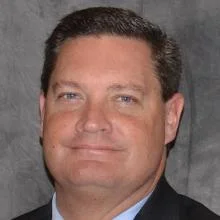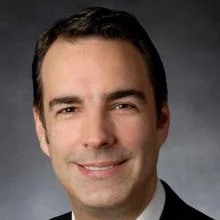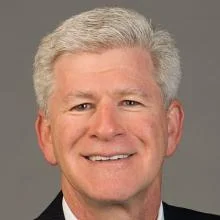It takes more than a promotion or job title to make a great leader. The best are those who constantly strive to improve their leadership skills – and who are thoughtful in their words, actions, and how they show up for their people every day.
Recently, finalists in the 2022 National CIO of the Year ORBIE Awards each shared a piece of advice they had collected over their careers. We’ve rounded up the 9 best quotes on leadership below. Read on, or download the complete quote book for advice on leadership, soft skills, career development, strategy, and more.
Essential lessons leaned on leadership
From continuous learning, to thoughtful coaching, to a memorable shopping-cart approach, consider how you can incorporate these core tenets into your leadership style.
5 actions to improve leadership

George Marootian, EVP, Head of Technology, Natixis Investment Managers – US: The memorable piece of advice that I was given early on in my career was as follows: If you want to lead, then be a leader. In order to do this, you need to:
-
Be humble. You do not lead for accolades, you lead because you intrinsically believe that you can successfully guide a team into the future and make a difference in your organization
-
Lead by example. Your team is constantly reminded about how to execute because they emulate you, and how you accomplish things
-
Write a list of everything you see in other leaders and emulate the positives and avoid the negatives. This list should always be growing
-
Revisit that list (#3) at least every 6 months to make sure that you are following it and potentially even recognizing that some things may have changed.
-
Always be certain that your team’s benefits outweigh their costs and be able to deliver that message on a moment’s notice. I have referred back to this time and time again for the past 20 years, and it has always been a great reminder of the effort required to be an effective leader.
Character matters

Jyoti Lynch, CIO, European Wax Center: Character matters. Always stay humble and respectful.
My parents instilled this principle in me, and the advice has guided me in my career and personal life.
I came to America for college and have achieved far more than I ever dreamt. Being an immigrant and a female in a male-dominated field brought its share of judgments and challenges in my career. With many great mentors along the way, one of the most important lessons I learned is that leadership is a privilege and that leading is about service.
Being respectful, building and nurturing a great network, and caring about people in an authentic way have been significant factors in my career growth and success. I quickly understood that it’s all about people and treating others with the same respect you’d like to get yourself.
My leadership philosophy is to be personal! I am accountable for the success and livelihood of many people, and my decisions and actions impact everyone around me. I want people to know my team beyond their title, role, the workplace, and vice versa. Knowing my team members and showing a genuine appreciation for their personalities, wants, needs, and work styles allows me to build a sense of trust and loyalty that leads to higher productivity and better morale.
Take care of your team, and they will take care of what matters most!
Ethics are essential

Anthony Bobos EVP, CIO, Vitalant: Throughout my career, I had only one true mentor but numerous coaches that have defined me as a leader.
I have been in Information Technology for a long time and have seen many technology implementations over my tenure. Early in my career, I met many leaders. There are good ones and there are not-so-good ones. But I learned to pay close attention to their styles and inherit actions I found positive and meaningful.
I always planned to lead one day so when given the chance, I carefully began to form my own leadership style. When working with technology, it can be challenging. I suppose that is why it is categorized as Computer Science. The science is working through issues with your vendors, customers, teams, and peers.
You must be a continual learner in this field as the knowledge you experience through trials and tribulations prepares you for the next big initiative.
When I am asked what is one memorable piece of advice you were given and how did it guide you in your career, I always refer to a CEO who promoted ethics early and often. The message was to always remain ethical in the way you always treat people and in your professional analysis and judgment. It is the most important trait that will define you as a leader and your brand.
5 key leadership tenets

Brian Gabbard, SVP of Global Shared Services & CIO, Ball Corporation: In the early 2000s, I was challenged by a mentor to come up with tenants of leadership that I aspired to model. I borrowed five tenants from the work of James M. Kouzes and Barry Posner from their work on Exemplary Leadership.
These five tenants have underpinned my leadership journey ever since:
Encouraging the heart – taking the time to know your team members… their passions, career aspirations, strengths, and opportunities. It is about fostering a culture of vulnerability, trust, and appreciation.
Enabling others to act – speaks to me the importance of being a “situational leader.” A situational leader is one that can provide the right directing, teaching, and coaching based on where a team member may be with any given situation. It is about making others feel capable.
Challenging the process – means creating an environment where others are encouraged to challenge the status quo, to take risks, and to give and receive constructive feedback.
Inspiring others to a common goal – be clear and inclusive in answering framing questions like Where are we going? Why are we here? And What is our current reality? It is a head, heart, and hands approach. The “what” helps with understanding (head), the “why” helps with purpose (heart), and the “where” drives intent (hands).
Modeling the way – at its core is this realization: Actions speak louder than words. Are we encouraging the heart, enabling others to act, challenging the process, and inspiring others towards a common goal?
Remember the shopping-cart approach

Rich Gilbert, SVP, Chief Digital Information Officer, Aflac US: Every experience throughout my career has taught me something new, shaped me as a person, and helped me grow.
Along the way, mentorship has been a powerful influence to guide my career journey. There is a great quote from Isaac Newton: “If I have seen further, it is by standing on the shoulders of giants.”
Early in my career, my first mentor spent time helping to shape my thought process, particularly around what it meant to be a leader, and that true leadership starts with a people-first mindset. He cared about his team and was not shy about sharing that. He told me, “People don’t care about what you know until they know how much you care.”
He also informed my shopping-cart approach to leadership traits. Throughout my career, I’ve met various types of leaders, noticing traits I loved and those I did not. My lesson was to only put the traits I most admired into my “shopping cart” to carry forward and leave the rest behind. This mindset helped me become a successful leader with the traits I most admired.
I see that in the leadership of Aflac as well. Aflac’s commitment to helping others stems from a founding culture of compassion, authenticity, and transparency. Aflac Chairman and CEO, Dan Amos, says it best: “Caring about others isn’t just a business decision. It’s the right thing to do.”
Be the change

Edward Wagoner, EVP & CIO, Digital JLL: “Be the Change.” H. James Dallas’s inscription in his book to me after the Inspire CIO keynote he gave influenced me to undertake a life-changing personal and professional transformation.
Sometimes we spend all of our time thinking about how others should change when we need to be the change that our people and our organizations need. This advice, coupled with his presentation at the 2018 ORBIE event, set me on course for transformation that resulted in a redefined role and enabled me to step up to the challenges presented during the pandemic when clients, the company, media, and virtually everyone with a workplace wanted to talk about how technology could enable their evolving workplace and hybrid strategies. This keynote and advice was the catalyst for me. Without it, I would not have been able to meet the challenges of the last several years.
We can always learn

William Fandrich, SVP & CIO, Blue Cross Blue Shield of Michigan: I made a conscious effort in my career to understand the breadth and depth of skills needed to be a successful IT executive. This included being a business executive leading a P&l and operations, as well as an entrepreneur with my own companies.
One piece of advice I received from the chairman of the board of one of my successful startup companies was along the lines of, “You are doing an amazing job, but remember one thing – there is not much distance between the bottom and the top. Today you’re a hero, tomorrow they will be calling for your job.”
Don’t get caught up in the highs or lows – believe in yourself, follow your dreams, use good judgment and be humble and self-reflective on everything you do. We all can do better, and we can always learn.
If you make a mistake, so what – just deal with it and move on. If you have a big win, appreciate the things that contributed to your success. Success is about longevity and perseverance and showing that no matter what happens, you can and will do the right thing.
Focus on the people

Todd Inlander, SVP & CIO, Southern California Edison: When I was in consulting, my boss gave me extremely useful advice – to stay connected to the work but resist the urge to focus too much on the details because the work gets done through the people. Focus on the people.
It took me five to 10 years to finally find my own balance. My engineering background helped me a lot. I’m now comfortable only occasionally rolling up my sleeves to dive into the details, but I don’t stay there long and quickly come back up. And when I get dragged into the details, it’s easier for me to step back, lean on the team members, and empower them to focus on the details as they are closer to them on a day-to-day basis.
Eventually, I learned this approach is a win-win situation. It’s not just about me focusing on the right work. Delegating the work helps us both with our career development: It helps me look at the big picture and empowers my team members to lead the solutioning. The trick was to find my own balance, that point at which I feel I know enough about the project and can add value to empower others to find the right solution.
This reminds me of a Teddy Roosevelt quote I love: “People won’t care how much you know until they know how much you care.”
Hire smart people and get out of the way

Thomas Murphy, University CIO & SVP of IS & Computing, University of Pennsylvania: Hire people smarter than you and free them to do what they do best. Get out of their way and give them the space to do what you hired them to do.
My dad often quoted this when I spoke with him about challenges early in my career. He pointed out that many leaders he knew hired brilliant people and then hamstrung them with policies and bureaucracy, didn’t listen to their ideas, and over-directed their outcomes.
The best leaders have the confidence to surround themselves with bright, energetic leaders and trust them to lead outcomes. The best leaders provide guidance and support, not the answers to everything. I think about this all the time.
[ Leading CIOs are reimagining the nature of work while strengthening organizational resilience. Learn 4 key digital transformation leadership priorities in a new report from Harvard Business Review Analytic Services. ]





